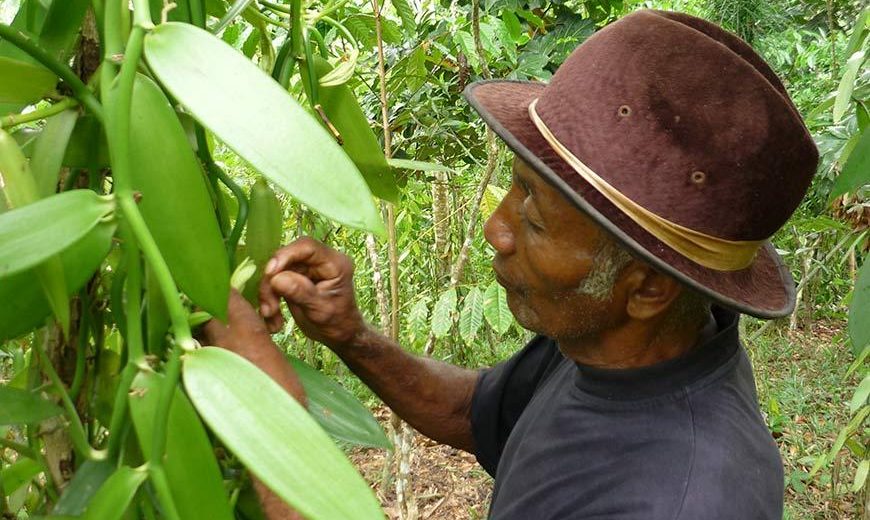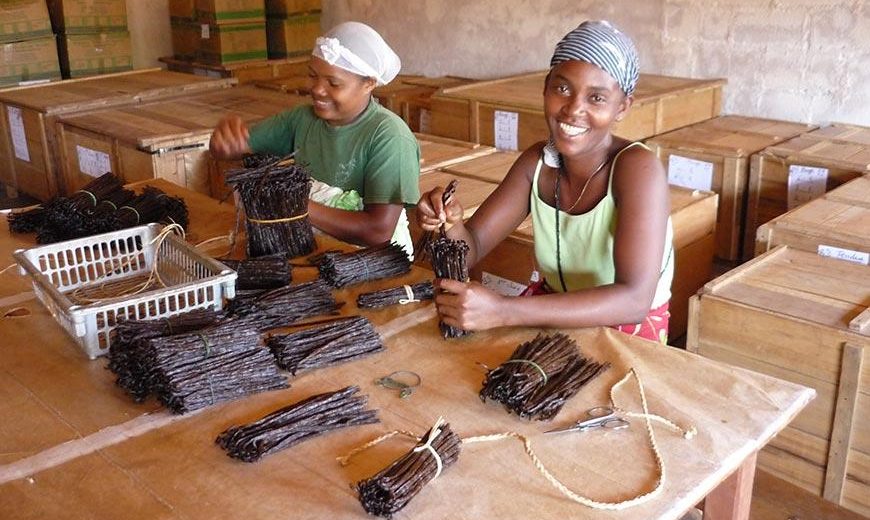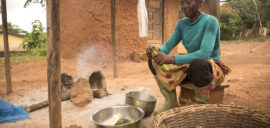Herbs and spices
We use herbs and spices to liven up our food. But the farmers and workers who grow them are often left with a bitter taste in their mouth. Fortunately a huge variety of herbs and spices are now available as Fairtrade.

Image © Sarina Rahn
This means shoppers can choose from a diverse collection of fresh and dried Fairtrade herbs and spices. Vanilla, rooibos, cardamom, turmeric and saffron are just a few examples. Cook with them, bake a cake, make a cup of tea, pop them in the bathtub: the possibilities are endless!
Choosing Fairtrade herbs and spices makes a difference
While the number of farmers and workers that grow herbs and spices is vast and diverse, the number of companies that trade and market them is not. This leads to a huge power imbalance when it comes to trade, with growers often feeling the pinch in terms of price.
The people who grow herbs and spices also face other challenges. Many work in remote areas, with poor transport and telecommunications links. This increases their production costs, hampers their market access and makes them reliant on a limited number of traders that visit their area.
Changing weather patterns and political instability can fuel price fluctuations, making it even harder for smallholder farmers and plantation workers to earn a decent living from their crops.
Fairtrade responds to these challenges in a number of ways.
Whether savoury, spicy, sweet or succulent, herbs and spices add a colourful kick to our cuisine and our cultures. Choosing Fairtrade helps to ensure that the farmers and workers who cultivate these products can continue to add spice to all of our lives!

Image © Sarina Rahn

Image © Didier Gentilhomme
What is the Fairtrade premium?
The Fairtrade Premium is an extra sum of money paid on top of the selling price that farmers or workers invest in projects of their choice.
They decide together and democratically how to spend the Fairtrade Premium to reach their goals, such as improving their farming, businesses, or health and education in their community. Farmers and workers know best what their priorities and needs are.
Since 2014, Fairtrade farmers and workers have received well over half a billion euros in Fairtrade Premium.
This is a unique benefit enabled by your decision to buy Fairtrade products.
Looking for Fairtrade Products?
Fairtrade products are widely available. The blue countries and territories on the map below have Fairtrade organizations that promote Fairtrade products. Their websites often include a product finder to show you the full variety of Fairtrade products near you. Even if there isn't a Fairtrade organization where you live, Fairtrade products may still be available – look for our familiar marks on products!
Related news
-

Fairtrade’s living income work is more relevant than ever
As fears of a long-term economic downturn increase, a living income - defined as enough to cover essential needs such as food, water, housing, health care, and weather unexpected ...
-

Exploring sustainable vanilla prices to achieve a living income for farmers
Exploring sustainable vanilla prices to achieve a living income for farmers
-

Vanilla Farmers in Madagascar Leading Against Child Labour
Vanilla is a labour-intensive crop that requires hand pollination outside of its natural habitat in Central America. It’s also one of the world’s most expensive spices, but that ...